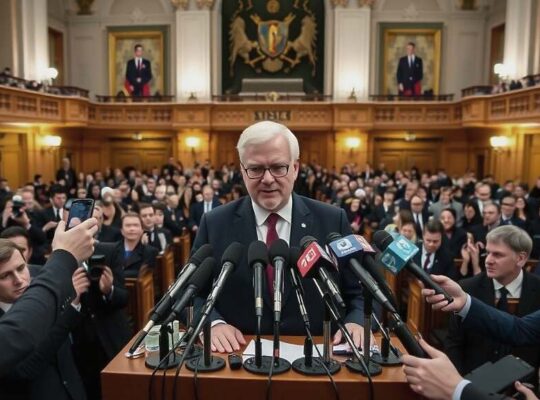The deputy parliamentary group leader of the SPD, Wiebke Esdar, has staunchly defended her participation in a demonstration protesting Chancellor Friedrich Merz’s recent remarks concerning urban landscapes, an appearance that has ignited a political firestorm and raised questions about the stability of the governing coalition. Esdar’s involvement, publicly aligning herself against a statement perceived as critical of diversity and multiculturalism, has drawn sharp rebukes from within the conservative CDU/CSU ranks.
Speaking to “Stern” magazine, Esdar expressed her bewilderment at the controversy, arguing that politicians should not alter their stances based on their position in Berlin. “I honestly don’t understand the uproar” she stated. “I believe that politicians should not suddenly position themselves differently in their constituencies simply because they now hold a leading function in Berlin.
The demonstration, held under the banner “We Are the Urban Landscape” took place in Esdar’s Bielefeld constituency. CDU/CSU parliamentary group secretary Steffen Bilger questioned the appropriateness of an SPD leadership figure publicly confronting the Chancellor, suggesting it undermined the coalition’s prospects. “One must question whether they still want the success of this coalition” Bilger remarked, alluding to the potential for irreparable strain.
Esdar countered these criticisms, reaffirming her commitment to the success of the coalition and her intention to continue working constructively with the government. She emphasized her deep connection to Bielefeld, highlighting her long history of engagement within the local community and her prior involvement in the “Alliance Against the Right” the group that organized Friday’s protest. She underscored Bielefeld’s identity as a diverse and cosmopolitan city, stating that her presence at the demonstration was a matter of solidarity with local residents who felt Chancellor Merz’s comments were insensitive and divisive.
The incident illuminates a growing tension within the German political landscape – a clash between national leadership and local sensitivities and potentially, a divergence in priorities between coalition partners. Esdar’s unwavering defense of her actions, coupled with her emphasis on local representation, underscores a willingness to challenge the Chancellor’s agenda, raising questions about the future trajectory of the fragile governing alliance and the extent to which regional voices will be considered within national policy decisions.












